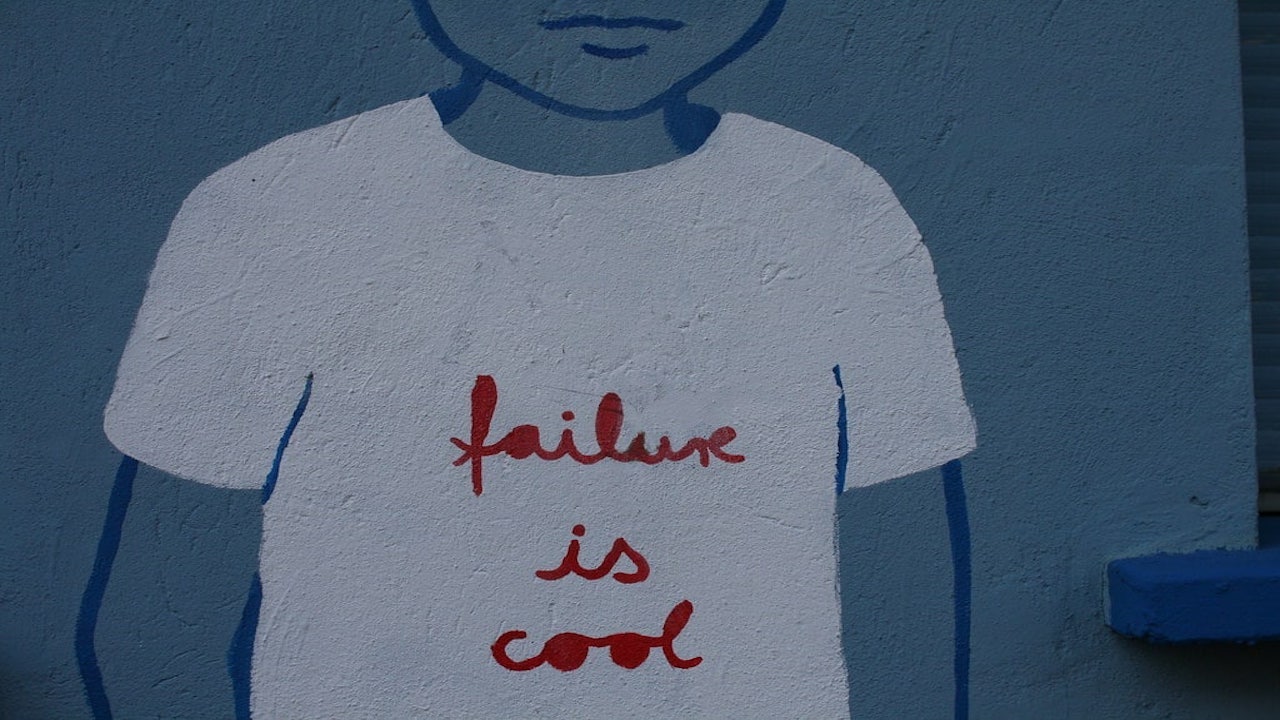Culture Editor Alex Blank shares her reflections on failure based on Bloomsbury Festival’s Fail Better Talks X Rooting Failure event.
I attended Bloomsbury Festival’s Fail Better Talks X Rooting Failure in hopes it would inspire me to deconstruct failure and be more comfortable around it. At the event, four designers were about to “speak candidly of the worst work they’ve ever created and, more importantly, what they’ve learned from it.†Although I enjoyed their stories, as well as the insightful points they made, the event left me unsatisfied. When are we going to stop seeing failure as a setback, or a mean towards something better – and is it even possible to do so?
The first two speakers, Mark Mordecai and Kid Circus, referred to failure as a ‘mistake’ and ‘disaster’ respectively. The former considered failure primarily in terms of making the wrong choices, which lead one to embarrass themselves in front of other people. The latter used examples of professional disasters that either did or did not lead to something better afterwards.
In both of these cases, failure is seen as something unexpected. If it’s a mistake, an error, then it suggests a lack of foresight or expertise. If it’s a disaster, it’s often interpreted in fatalistic terms where the failure in question lives outside of you, and you have to live with its larger-than-thou consequences. Personally, I don’t think these two terms count as failures at all.
Failure should not be unexpected, unforeseen, unprecedented. Failure is, most of the time, a given. By calling failures mistakes or disasters, we situate them outside of regular life, claiming they’re exceptions to rules and patterns our lives are supposed to be governed by. This is not true. We fail every day. We fail all the time. And it’s normal.
The third speaker, Lisa Rahman, discussed failures in the context of communication – either failing to tell people what exactly she does for a living, or failing to reach large audiences while sharing her work. This might be a vision of failure closer to how I interpret it, but I worry that separating failures in communication from regular communication implies that most of our interactions are a success. But are they, really?
Each of us has their own subjective consciousness, which means we’ll never fully understand each other. You may tell me what you do for a living, and I may – and will – interpret it as I wish. I may twist your words, I may compare your position to mine, or I may not believe you. With regard to expressing oneself in front of an audience, this is even more open to interpretation. We tend to consider a successful career in terms of the quantities we reach instead of the qualities of the connection between the work and the viewer/reader, and in this sense we fail constantly. We will never reach everyone we want to reach, and if we do, they might still recontextualise our work to a large degree. What really matters is how strong the link between your art and the audience is, how deep the mark left by the former on the latter.
My favourite speaker might have been the last one, Nick Eagleton, who defined failure as “the gap between aspiration and achievement.†The bigger the gap, the bigger the failure, which is often linked to having unrealistic expectations about what we want to pursue. Many of us prefer to either remain in the ‘aspiration’ stage or jump into ‘achievement’ right away, because we’re too afraid of what’s in between. In reality, all in-between is failure, which means everything we do – when we’re not busy daydreaming for hours or accomplishing things for a split second – is a failure. The entire process is a failure. And then, when we’re done, when we do achieve something? Our mind has already moved on to another thing, another aspiration, another roadmap of failure.
To me, failure is the fabric of every single thing we do, unless we couldn’t care less about the things we do, because failures are linked to our own perceptions and emotions. We care, so we do, so we feel; then we (perhaps) succeed, which is only another word for failure sugarcoated with esteem and temporary satisfaction. I don’t mean to sound morbid, but success is just as fleeting as our understanding of it.
The reason why I did not necessarily agree with some of what the speakers said is because they implied – in my failed understanding of it, at least – that we use failures to learn something from them and become better than we had been so far. Though I do believe that failures can teach us a lot, I don’t think they are only a stepping stone towards something better. Instead, they are life itself.
Success is scarce, whereas failure is never-ending. If we step into something with a desperate need to succeed, there’s only a limited amount of time, resources, or whatever it is we want to do. With failure, however, we can do anything. If we accept it as an inevitability, we’ll finally be able to move on, to create, to live.
And if you ever do reach the supposed peak of all your aspirations and abilities, and you are certain you’ve conquered failure altogether? Well, I think this is only another failure – one of perspective.
















